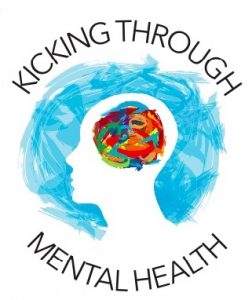
Welcome to a series of interviews which lift the lid on some of the obstacles and troubles that top players have learned to battle against, control and overcome to continue to perform at the highest level in the women’s game. The idea is to share so that we all (be it me, you, parent, coach, team mate, teacher, fan etc) remember that we are not alone, that even if it might not seem like it, so many of us have our struggles. And there is hope. Remi Allen (Reading) has made this happen but so have these equally brave and honest women. I will share Remi’s words to remind you why she and her friends in the game decided to do this, because she does it better than me. These women are inspiring. These are their stories. JEN O’N (SK Ed)

REMI EXPLAINS: It is something I have wanted to do for a while. It’s not one of those things like ‘I want you to know my business and to know how I have struggled’. It was on ‘World Mental Health Day’ and I was on social media seeing so many people coming out and saying how they know people who are struggling or that they are struggling, or their daughters, sons, whomever. As female footballers, we have a powerful influence and can be huge role models, especially to children. I thought, if I can share my experience and I can get other players to share their own, then potentially, how much difference could we make? Whether it is one person, or a lot of people, if we can just get youngsters and adults to know that it’s okay not to be okay and that it is also okay to speak out. Read Remi’s story HERE…


Reading & Wales’ RACHEL ROWE has shown she is adaptable on the pitch, able to move from midfield to defence and always demonstrating the same committed attitude and high standards of performance. Here she openly talks about how she has been adapting and growing as a person too, despite the frustration, sadness and anger she feels because of her dad…
Does training or playing stress you out or make you unhappy or anxious? Has it in the past?
On the whole no but occasionally training has stressed me out but that is predominantly when I haven’t had a good session or have felt stressed going into it.
Has something outside of football or outside of your control affected your training and/or playing?
Yes.
What was/were the problem/problems, if you can explain?
One of the main problems I have had, and still have, is managing my emotions towards thoughts of my father. He was an alcoholic whilst I was growing up and died when I was 21. Our relationship deteriorated throughout my teenage years because I was angry at the lifestyle he had chosen to lead. That anger is still there when I think of him.
How did it affect your football? Did it affect how you felt, how you acted and/or how you were able to perform?
Football has always been my emotional release. It makes me forget about everything else and I just focus on the game. There have been times prior to going into training or matches that I have been angry or upset and sometimes that shows in the way I train or play but I try my best to manage myself when that happens.
Did it happen ‘overnight’ or build slowly?
It was always there.

How long did it take for you to realise this was a problem and how long did it take for you to try and do something about it?
It has always been a problem for me to deal with but as I have got older I have learnt to deal with it better.
Did you tell your coach or team-mates?
It’s not something I hide but also not something I openly tell people about, if I am not asked.
The people that do know me more personally understand why I have certain personality traits and why I act in a certain manner sometimes.
Did you look elsewhere for help? Where and did you find it?
I have never really looked for help for my problem, but more for the anger and frustration I feel as a result of it.
What did you do or do you do about to manage it or make it better?
I have learnt over the years that holding on to the anger, sadness and frustration I feel toward my father’s choices is going to hold me back in life. I also understand that I am allowed to feel sad and get angry about it but that I just have to do something with myself to make myself happy in those episodes.
Does it work?
There are occasions that it does get to me but it is significantly better than before. It is still a ‘work-in-progress’ but I am determined to not let it affect me forever.

Is there something you wish you had done differently?
I wish I had asked for help earlier in my life rather than building a thick skin and pretending there was nothing wrong.
How do you think having these issues/problems have affected you as a player and as a person?
As a player I don’t feel like they have affected me a lot, I think football gave me the environment to express myself and my emotions. As a person I feel like it held me back a lot. Looking back at the person I was a few years back I don’t like the person I became. But by opening up and talking about my past I have started to become a better person.
Were you surprised or taken aback by struggling to cope with something?
I felt like I shouldn’t be struggling as I am a strong person. I also felt that most people have problems so I wasn’t going to be the one to moan about mine.
Do you or did you feel embarrassed, guilty or weak?
I felt all of those emotions: embarrassed to speak about my father, guilty for the way I acted at times off the back of not being able to control myself and weak because I didn’t want to be that person that let their problems show to others.
If a team mate/friend came to you with a similar or different problem, what would/did you say or do?
I would tell them to speak to a professional. I would also talk to them about my experiences to assure them that they will be ok but it will take time. I think the most important thing is to show support for the person and tell them that if they ever need to talk about it that you will always be there for them, regardless of whether they are upset, angry or frustrated.
Would you think they were bad or weak?
NO.
I don’t think that people talk enough about their problems or things that have affected them in the past. There will always be people there for them. It’s okay not to be okay.
Rachel made this short film at the end of last year with The Sun, talking about the strains of fitting her football around her job and her struggles growing up – it just demonstrates some of the often unseen obstacles that players overcome and their passion to win their battles both on & off the field, to perform at their best in the sport they love…WATCH HERE: ⬇️
Follow Rachel on Twitter: @RachelSRowe
WHAT NEXT FOR YOU? WANT TO SPEAK TO SOMEONE OR SIMPLY NEED MORE INFO?
There are some amazing charities & people out there (these are just a few) if you don’t know who to reach out to:
https://www.mind.org.uk/workplace/mental-health-awareness-week-2018/
https://www.ifucareshare.co.uk




